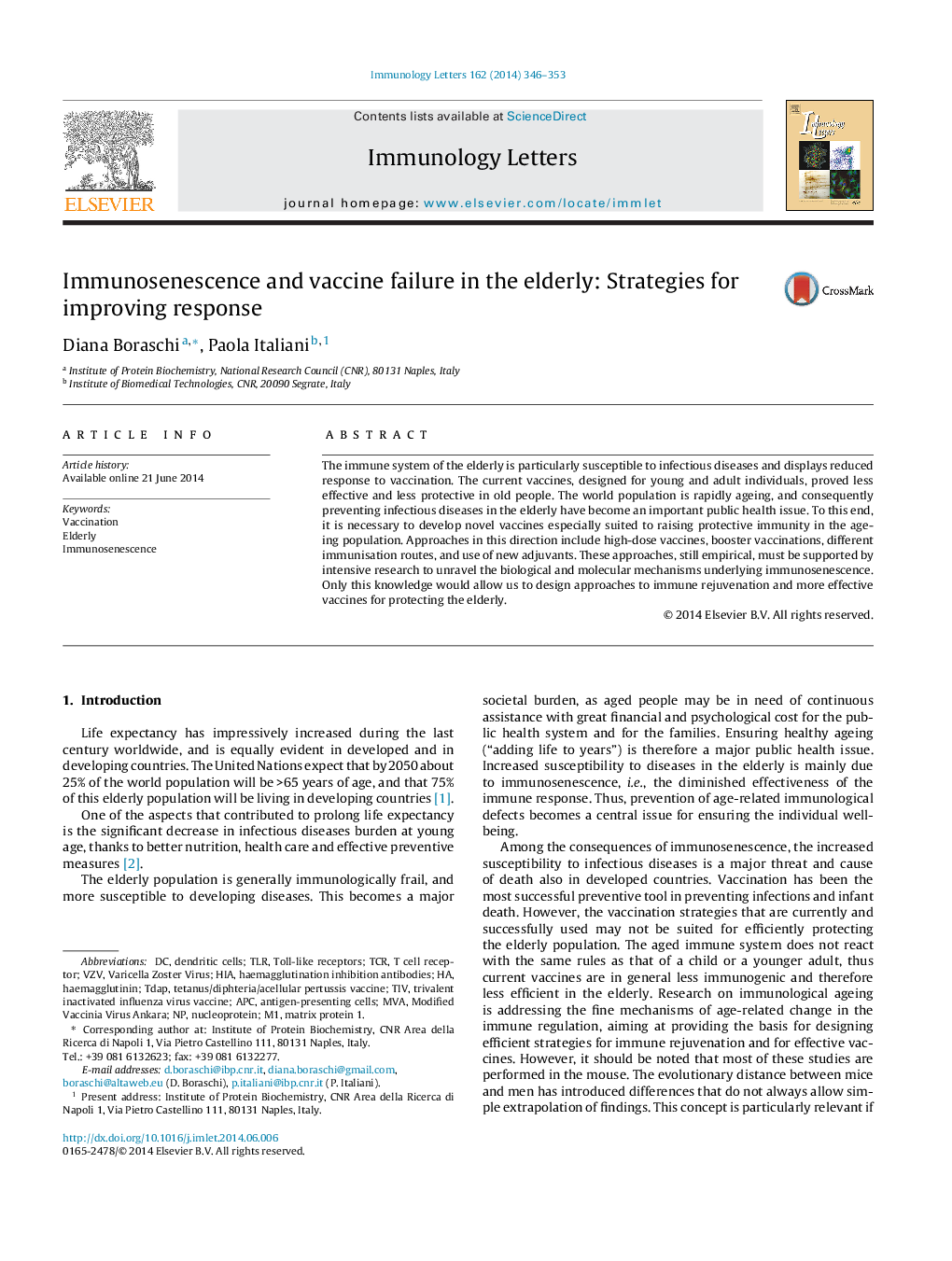| Article ID | Journal | Published Year | Pages | File Type |
|---|---|---|---|---|
| 3355418 | Immunology Letters | 2014 | 8 Pages |
•The immune response in the elderly is anomalous as compared to that of young and adult individuals.•Vaccines designed for children and adults may be less effective in the elderly population.•Vaccine design requires knowledge of the immunosenescence mechanisms and of the individual past history of exposure/immunity.•Current vaccination strategies are still not personalised, but act on improving various aspects of vaccination.•These include increased/repeated vaccine dosing, different administration routes, use of adjuvants, and new delivery systems.
The immune system of the elderly is particularly susceptible to infectious diseases and displays reduced response to vaccination. The current vaccines, designed for young and adult individuals, proved less effective and less protective in old people. The world population is rapidly ageing, and consequently preventing infectious diseases in the elderly have become an important public health issue. To this end, it is necessary to develop novel vaccines especially suited to raising protective immunity in the ageing population. Approaches in this direction include high-dose vaccines, booster vaccinations, different immunisation routes, and use of new adjuvants. These approaches, still empirical, must be supported by intensive research to unravel the biological and molecular mechanisms underlying immunosenescence. Only this knowledge would allow us to design approaches to immune rejuvenation and more effective vaccines for protecting the elderly.
